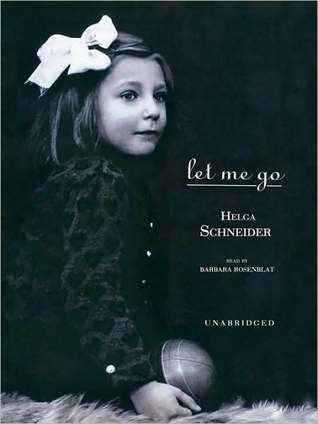What do you think?
Rate this book


Unforgettable and deeply arresting, Let Me Go is a haunting memoir of World War II that “won't let you go until you've finished reading the last page” (The Washington Post Book World). In 1941, in Berlin, Helga Schneider's mother abandoned her along with her father and younger brother. Let Me Go recounts Helga's final meeting with her ailing mother in a Vienna nursing home some sixty years after World War II, in which Helga confronts a nightmare: her mother's lack of repentance about her past as a Nazi SS guard at concentration camps, including Auschwitz, where she was responsible for untold acts of torture. With spellbinding detail, Schneider recalls their conversation, evoking her own struggle between a daughter's sense of obligation and the inescapable horror of her mother's deeds.
Audiobook
First published January 1, 2001